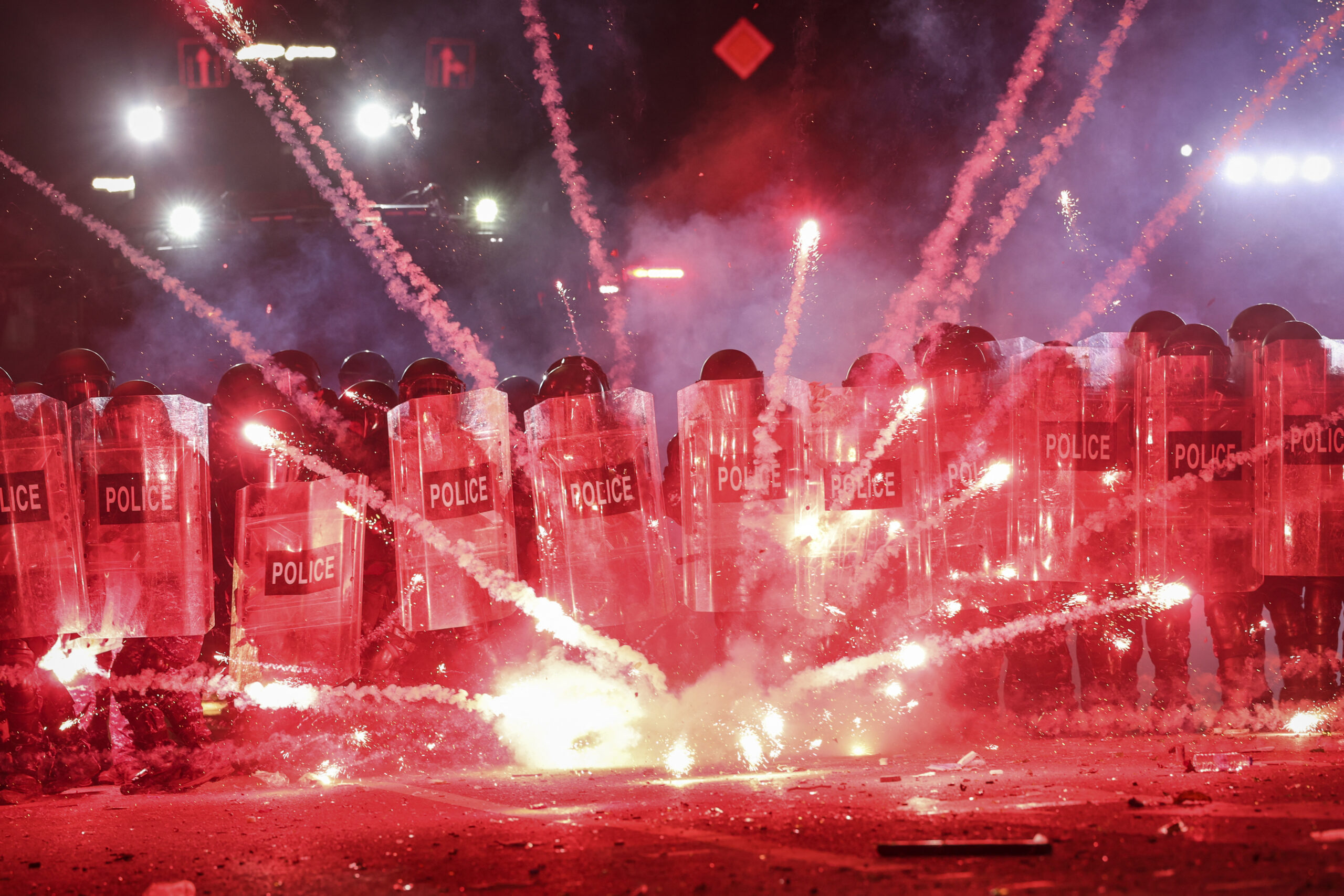The ruling party’s grip on power seems to be holding firm, despite frequent anti-government protests since October
This assessment was issued to clients of Dragonfly’s Security Intelligence & Analysis Service (SIAS) on 12 December 2024.
- Such protests are likely to continue this month, particularly around indirect presidential elections scheduled to be held on 14 December
- But we still forecast that these will peter out over the next month as the opposition seems to lack a clear strategy to pressure the authorities
Daily anti-government protests are likely to continue this month. These have been ongoing since the prime minister suspended EU accession talks on 28 November. The election of a new president on 14 December and their inauguration on 29 December are likely to be further flashpoints for protests. The current president has been a pivotal figure in the protest movement and is refusing to step down. To reflect the size and turbulence of the protests, we recently raised our countrywide civil unrest risk rating from moderate to high.
Still, we expect these protests to peter out over the coming month. This is because the opposition lacks clear leadership and a common agenda to pressure the government to fulfil their demands for a rerun of the October presidential polls. There also seems to be little incentive for the ruling Georgian Dream (GD) party to concede to opposition demands, which include closer political ties with the EU. The opposition also lacks options to challenge its grip on power, apart from holding demonstrations.
Protests seemingly not losing momentum yet
Countrywide protests, including sporadic confrontations with police, have been ongoing since the general elections on 26 October. The opposition alleges that the ruling party tampered with the results. The violence became more widespread and intense after 28 November. This was in response to the PM announcing the suspension of the country’s EU membership application process until 2028. Daily protests are attracting tens of thousands of people across the country, with violent dispersals by police around parliament in Tbilisi.
Political crisis unlikely to end in compromise
There seem to be few prospects for an end to the ongoing political crisis. The opposition continues to demand a rerun of the October polls and closer ties to the EU. But the government has shown little to no desire to address these grievances, or willingness to begin talks. Signalling this, videos shared on local telegram channels purportedly showed police on 4 December violently detaining Nika Gvaramia, a prominent member of the opposition. According to local NGOs, at least 26 people have been arrested and charged by the authorities for inciting violence during protests.
The presidential elections on 14 December are likely to be a flashpoint for large and potentially violent protests. President Salome Zourabichvili said on 30 November that she will not step down until a ‘legitimate parliament’ is elected. Zourabichvili has been a key figure in the protest movement and has repeatedly called for new elections in her addresses to the nation. We foresee four ways in which the situation might unfold:
- Zourabichvili steps down under government pressure
- Zourabichvili gets arrested or is forced out of office
- GD begins negotiations with the opposition, led by the president, to elect a new president
- GD introduces martial law around the elections to maintain order
On current indications, we assess the most likely scenario is the president entering negotiations with the government. That is because the president can use the situation as leverage for the protest movement, but otherwise lacks arguments to pressure authorities into fulfilling any opposition’s demands. Negotiations would also deter larger and more violent protests, which the government probably views as being in its interest. But we assess the authorities would only offer placating measures. GD withdrew from the negotiated agreement after similar protests after the last elections in 2020 without any consequences.
Instead, the government is likely to continue to suppress protesters. We have seen local media reports in recent days of individuals dressed in black and attacking protesters, foreigners and journalists. The authorities have in the past used thugs to assault protesters and deter participation in protests. The parliament is currently proceeding with a law to ban fireworks, face covers and laser pointers at mass events.
Protests likely to peter out into next year
Still, we forecast that the protests will probably peter out over the coming month. The protest movement lacks clear leadership and is made up of political parties and civil society groups with differing agendas. The opposition also seems to lack a clear plan to challenge GD. The opposition has hinted at a nationwide strike, but we doubt this would be sufficient to obtain concessions from the ruling party because thus far we have not seen any major labour union, that could affect the government, supporting the idea.
That said, we expect the protests to once again increase in size and violence, if any of the below happen, in no particular order:
- There are fatalities among protesters
- Resignations or critical statements from GD members
- The security forces refuse to disperse protesters or join the demonstrations
- Introduction of martial law
Even then, we assess that the government has the leverage to quell demonstrations if the situation escalates. This includes at least a declarative return to the ‘European trajectory’, limiting gatherings and using state institutions to intimidate or arrest opposition members.
Image: Fireworks fired by protestors explode along police lines as the two sides clash during a demonstration against the government’s decision to delay European Union membership talks amid a post-election crisis, outside Georgia Parliament in Tbilisi, early on 1 December 2024. Photo by Giorgi Arjevanidze/AFP via Getty Images.




